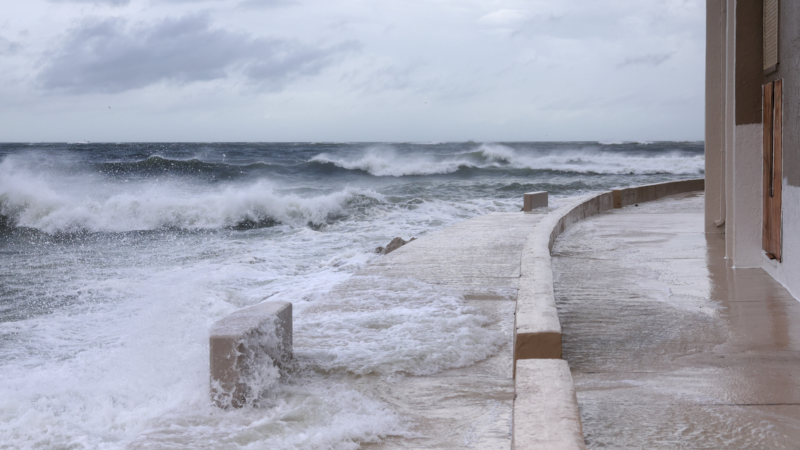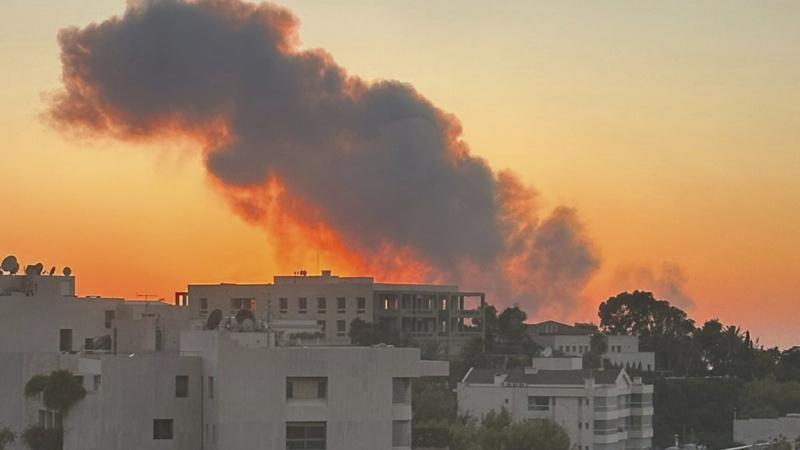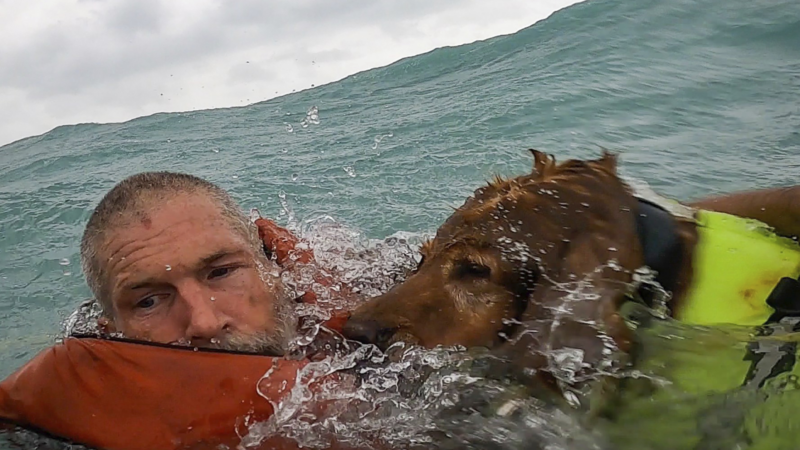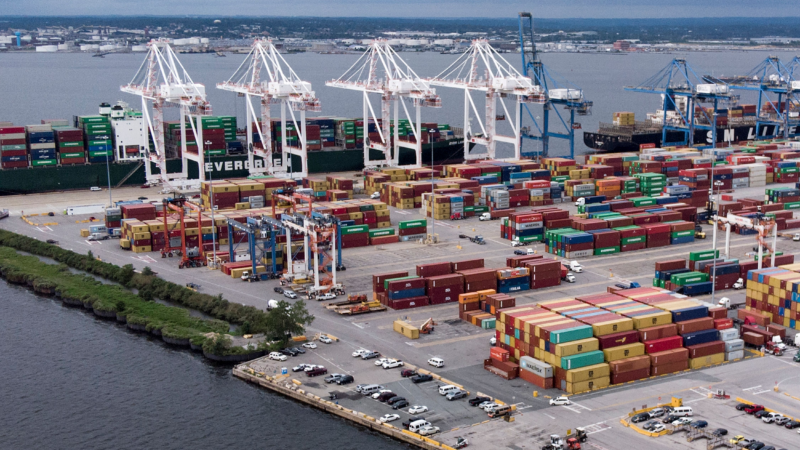Abnormally warm water helped Helene rapidly intensify and suck up moisture
Follow NPR’s live updates for the latest on the impact of Helene.
In the two days before it hit Florida, Hurricane Helene grew from a relatively weak tropical storm into a major Category 4 hurricane.
When a storm gets powerful very quickly like that, scientists call it rapid intensification. Such rapid intensification is relatively normal for major hurricanes that form in the Atlantic, according to federal hurricane data. For example, every Category 5 hurricane that hit the United States in the last century was a tropical storm three days earlier, according to Ken Graham, the director of the National Weather Service.
Loading…
However, there is some evidence that as the planet heats up due to human-caused climate change, rapid storm intensification may also be growing more frequent. One reason is that storms are forming over warmer ocean water than in the past, because oceans absorb a majority of the extra heat that’s trapped on Earth by planet-warming pollution.
Hot ocean water is fuel for hurricanes and helps them gain strength.
The water in the Gulf of Mexico when Helene was strengthening was about 85 degrees Fahrenheit — like a warm bath.
“The major ingredient that is present in virtually all of the rapidly intensifying events is an incredibly warm ocean surface,” explains Jill Trepanier, a hurricane climatologist at Louisiana State University.
But, while many climate models suggest that storms will gain strength more quickly as the Earth heats up, it’s still unclear whether that trend is already underway. It’s an active area of research.
Abnormally warm ocean water also causes storms like Helene to suck up huge amounts of moisture as they move toward land. That moisture then falls as rain. Past storms that caused catastrophic flooding, like Hurricane Harvey in 2017 and Hurricane Florence in 2018, dropped more rain than they would have without human-caused climate change, scientists found.
This story originally appeared as part of NPR’s live coverage of Hurricane Helene, September 27, 2024.
Trump campaign hack traced to three Iranians seeking to disrupt election, DOJ says
The Justice Department unveiled criminal charges against three Iranian hackers who allegedly compromised Trump campaign accounts and sought to erode confidence in the U.S. election.
A meteorologist in Atlanta rescued a woman from Helene floodwaters on camera
FOX Weather meteorologist Bob Van Dillen was broadcasting from Atlanta early this morning when he heard a woman crying for help in the dark.
Israel says it struck Hezbollah’s headquarters as huge explosions rocked Beirut
The Israeli military said it carried out an airstrike on the headquarters of Hezbollah in Beirut, shortly after Israeli Prime Minister Benjamin Netanyahu addressed the United Nations.
Curbside composting ‘doesn’t work’ for many Brookline residents. A new program aims to help
Brookline's new food waste drop-off pilot program let residents drop off food scraps at four different bin locations — free of charge.
The Coast Guard save a man and his dog from a sinking boat off the coast of Florida
Before Helene even made landfall in Florida, authorities conducted a dramatic rescue operation: The U.S. Coast Guard saved a man whose sailboat started taking on water off the coast of Sanibel Island.
Dockworkers are on the verge of a strike. Here’s what you need to know
Some 25,000 dockworkers at East and Gulf Coast ports may strike as early as October 1 if their union doesn't reach a contract deal with shipping companies and port operators.






